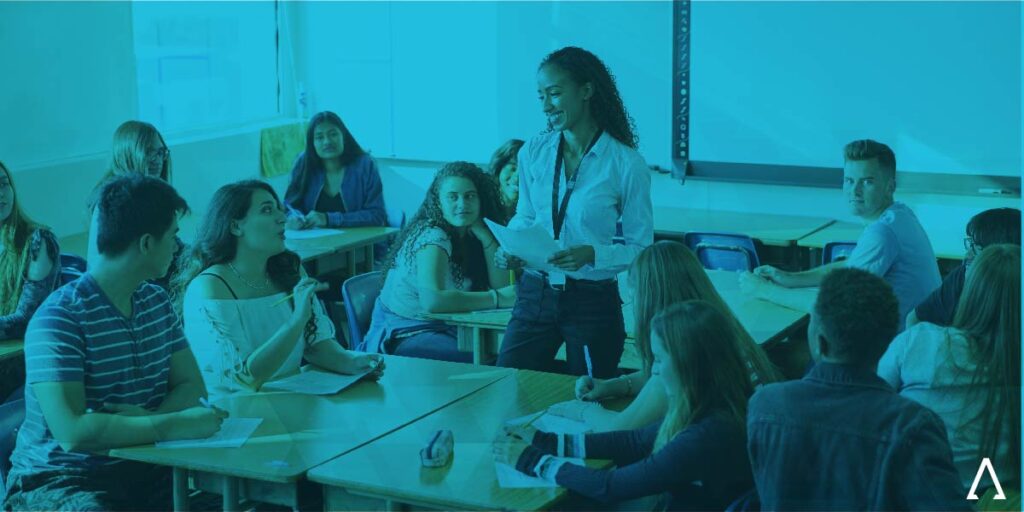Over the last several decades, there has been a ton of research on how early experiences affect later substance use.
Early intervention—particularly from birth to age 8—can significantly reduce the risk of substance misuse and other harmful behaviors. A study published in the journal Psychological Science found that kids who had used drugs or alcohol before age 15 were two to three times more likely to have a Substance Use Disorder by age 32. This information shows we need to reach kids early with preventative measures.
In 2016, the National Institute on Drug Abuse (NIDA) released a guide for early childhood interventions. In it, they emphasize strong collaboration between families and schools. The cliché that “it takes a village” applies here—the community works in tandem to support the child’s healthy development.
They also highlight the effectiveness of interactive techniques like role-playing and guided play sessions. NIDA points out that one goal is “teaching children to manage their own emotions and behaviors, thereby helping children develop self-regulation.” Many of us with histories of addiction used substances for emotional regulation. Developing these skills early will help children throughout their lives.
It’s important to reach kids at an early age, but it doesn’t stop there. According to the Substance Abuse and Mental Health Services Administration (SAMHSA), youth transitioning to adulthood (about ages 18-25) have some of the highest rates of substance misuse.
SAMHSA suggests several evidence-based techniques for intervening with this age group. Cognitive Behavioral Therapy helps people learn to identify, understand, and interrupt negative thought patterns. It promotes self-awareness. Social norms campaigns bust myths that normalize substance use. Wraparound services provide comprehensive, individualized care to youth with serious mental health challenges.
Similar to early education that emphasizes collaboration between the family and school, young adult prevention involves community mobilization. SAMHSA defines this approach as bringing together “multiple sectors to address substance misuse among young adults by assembling necessary resources, disseminating information, generating support, fostering cooperation, and developing a plan of action informed by evidence-based practice.”
TruHealing Centers is committed to not only providing quality treatment for people struggling with addiction, but also to helping prevent more people from falling into addiction in the first place.
Staff at our centers provide trainings for middle and high school students. Our show Straight Talk is an educational resource about addiction and recovery for kids, parents, teachers, and other community members. We have partnered with Baltimore County Public Schools to provide drug and alcohol counseling at school through one of our local centers, Foundations Recovery Center.
If you are struggling with a substance use or mental health disorder, Amatus is here to help. At our facilities across the country, we offer high-quality care for addiction and mental health. Our staff will help you understand the root causes of your addiction so that you can thrive in long-term recovery. To learn more, call an admissions specialist at 410-593-0005.








